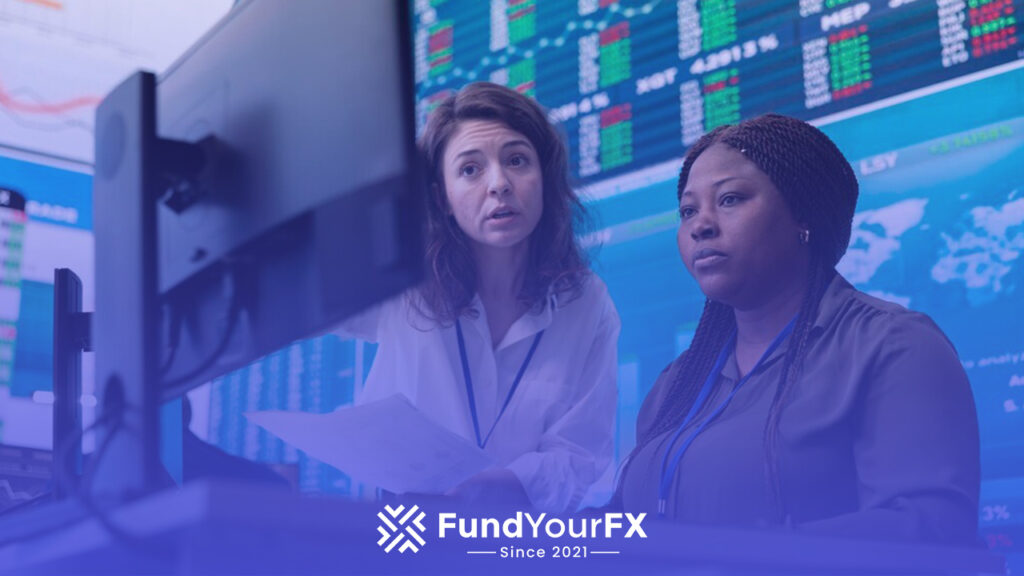Deciding between choosing forex vs futures trading means looking closely at how each market functions and what fits your needs. Forex trading is known for its decentralized structure, allowing people to buy and sell currencies at nearly any hour of the day. This around-the-clock access often attracts those who want flexibility and the ability to react quickly to global events. In contrast, futures trading takes place on regulated exchanges where contracts follow strict standards for size and expiration dates, which can offer a sense of security for some traders.
You’ll also want to pay attention to other factors, such as how much you can control with your money (margin requirements), how each market is supervised, and the tools available for managing risk. For example, forex markets usually let you start with a smaller initial deposit, while futures exchanges set clear rules and promote transparency. Both markets have their own set of risks, so understanding these details can help you avoid unnecessary surprises.
What is Better, Futures or Forex?

Whether futures or forex is “better” really depends on your personal trading goals, risk tolerance, and experience. Futures trading offers a highly regulated, transparent environment with a wide range of assets, but usually requires more capital and can be more complex. Forex is more accessible, requires less starting capital, and trades 24 hours a day, but it’s less regulated and carries risks with broker practices and high leverage. In short, if you value regulation and want to trade more than just currencies (and have enough capital), futures might be better for you. If you prefer flexibility, lower entry costs, and are mainly interested in currency trading, forex could be the better choice. Ultimately, neither is universally better—it comes down to which market better suits your needs and trading style.
Understanding the Forex Market
The forex market stands out for its high liquidity, making it the most active financial market globally. Every day, traders exchange more than $6.6 trillion, buying and selling currencies in pairs. This market operates around the clock from Monday to Friday, giving you the flexibility to trade at nearly any hour.
Because forex trading is decentralized and over-the-counter, you can quickly respond to breaking economic news and global events, which can move prices within minutes. Forex trading involves trading currency pairs, with prices influenced by a wide range of economic and geopolitical factors.
With access to over 80 different currency pairs, traders have plenty of ways to act on their views about the economy, hedge against risk, or pursue potential profit. For example, major pairs like EUR/USD or USD/JPY tend to attract the most volume, while exotic pairs offer options for those seeking different price movements.
Building a successful trading approach means keeping an eye on factors like interest rates, inflation reports, and geopolitical developments, all of which can affect currency values.
Most forex brokers offer competitive bid-ask spreads, helping to keep transaction costs lower compared to other markets. This is especially helpful for those who trade frequently.
Understanding How Futures Trading Works
Futures trading means agreeing to buy or sell a specific asset—like oil, gold, corn, or a major currency—at a set price on a specific date in the future. These contracts are standardized, which means the exchange decides on contract details such as the size, expiration date, and the exact type of asset involved.
Because these contracts trade on regulated exchanges, the process is transparent and consistent for all participants. When trading futures, it is vital to consider risk management strategies to protect yourself from significant losses that can quickly escalate due to leverage. Futures markets also offer enhanced transparency compared to some over-the-counter products, which helps ensure fair pricing for all traders.
To start trading futures, you don’t need to pay the entire contract value upfront. Instead, you deposit an initial margin, which is a percentage of the contract’s total worth. This allows for greater market exposure, but it also means that gains and losses can be much larger than your original investment.
That’s why understanding the risks and potential rewards is so important. If prices move against your position, you might have to add more funds to maintain your trade.
People use futures for different reasons. For example, a farmer might lock in a selling price for their crops to protect against falling prices, while an investor might try to profit from expected price changes.
The exchange’s clearinghouse plays a key role by making sure trades are settled smoothly and reducing the risk that either party will default.
Key features of futures trading include:
- Standardized Contracts: Every futures contract follows specific rules set by the exchange, making it easier to buy and sell.
- Centralized Exchanges: Trading happens in one place, so prices are clear and fair.
- Margin Requirements: You only put down part of the contract’s total value, which can increase both profits and losses.
- Risk and Reward: Because only a fraction of the contract’s value is needed, both potential gains and risks are amplified.
- Trading Strategies: Some people use futures to manage risk, while others aim to earn a profit from price swings.
Futures trading can be a useful tool for both companies and individual investors. However, it’s important to learn the basics, understand your financial goals, and use strategies that fit your situation before trading.
In both futures and forex markets, effective money management is crucial for protecting your capital and optimizing trading outcomes.
Difference Between Forex and Futures
Forex and futures markets are both popular ways to trade financial assets, but they have key differences. Forex, or the foreign exchange market, deals exclusively with buying and selling currencies, and trades are usually settled almost instantly or within a very short time. In contrast, futures markets cover a wider variety of assets—including currencies, commodities, stock indices, and more—and involve contracts that settle at a set date in the future. So, while forex is focused solely on immediate currency trading, futures allow for trading many different asset types with agreed-upon settlement dates down the road.
Weighing the Pros and Cons: Forex Vs Futures Trading
Choosing between forex and futures trading can shape your strategy and results, so it helps to know what sets these markets apart.
Forex trading is known for its high liquidity, meaning you can quickly buy or sell currencies almost any time of day. This fast-paced environment allows for quick trades and flexible strategies. However, forex brokers often offer very high borrowing ratios—sometimes up to 500:1—which means even small changes in currency prices can have a big effect on your account. This can work in your favor, but it also means losses can happen just as fast. Careful risk controls matter a lot here. Many traders in the forex market rely on technical analysis tools to identify trends and time their entries and exits effectively.
Futures trading, on the other hand, uses standardized contracts and typically lower borrowing ratios, often around 20:1. This setup can help limit risk, but it might also restrict your potential gains unless you’re timing your trades well. Futures markets operate with set trading hours and contract sizes, which can make planning easier for some traders.
Both markets require a solid understanding of risk and how using borrowed funds affects your exposure. If you’re just starting out, you might find the structure of futures easier to manage, while experienced traders often appreciate the speed and flexibility of forex.
No matter which path you choose, make sure you have a clear plan, stick to your risk limits, and review your strategies regularly. Volatility measurement tools, such as the VIX and historical volatility, can also help you monitor changing market conditions and manage your risk more effectively. That’s how experienced traders stack the odds in their favor.
Which Market Is Right for Your Trading Strategy?

Selecting between the forex and futures markets depends on how you like to trade and what you expect from the market. Each market has its own features that can fit different trading approaches.
Trading Style and Market Conditions
Start by thinking about how you handle stress, your reaction time to breaking news, and your comfort with price swings.
Forex markets run 24 hours during the business week, so you can trade almost any time, which works well if you like to respond quickly to global events. On the other hand, futures markets have set trading hours and offer contracts on everything from currencies to commodities, making them a good fit if you prefer a more structured environment.
Liquidity and Flexibility
Forex is known for its high liquidity, especially with major currency pairs. That means you can usually buy or sell without much slippage, which is important if you use fast-moving strategies or trade large amounts.
Futures also offer deep liquidity, but mostly for popular contracts like the S&P 500 or crude oil. If you want a wider range of instruments, forex may suit you better.
Risk Management and Costs
Consider how you handle risk and what kind of margin requirements you’re comfortable with.
Forex brokers often allow you to control larger positions with a smaller deposit, but this can increase both potential gains and losses. Futures have standardized contracts and clear margin requirements, which can make it easier to manage your exposure and understand your costs.
Transparent fees in futures can appeal to traders who want to know their exact transaction costs upfront.
Technical Analysis and Trading Tools
Think about how you use charts and indicators. Both markets support technical analysis, but some traders find that the high liquidity in forex leads to smoother chart patterns.
Futures markets, thanks to their structure, can be easier to analyze for certain technical setups, especially if you focus on a specific contract.
Trading Hours and Personal Schedule
If you need flexibility because you trade around a busy schedule, forex’s round-the-clock access is a big advantage.
Futures are best if you like the discipline of set trading hours and want to avoid overnight surprises.
Key Points to Consider:
- How quickly do you want to react to market news? Forex allows for fast responses, while futures are more structured.
- Are you comfortable with using margin? Forex offers higher margin, but with greater risk. Futures margins are standardized.
- Which instruments do you want to trade? Forex gives access to numerous currency pairs; futures offer a variety of contracts.
- How important are trading hours to you? Forex runs nearly non-stop, futures have set hours.
- What type of fee structure do you prefer? Futures offer transparent costs, forex fees vary by broker.
Both forex and futures have their strengths. The best choice comes down to your own trading style, risk tolerance, and goals.
Try out both markets with demo accounts to see which one feels right for you. If you want more insight on optimizing your approach, consider studying technical analysis tools to refine your trading strategy and decision-making.
Conclusion
If you’re deciding between forex and futures trading, it helps to think about how much risk you’re comfortable with, your preferred trading hours, and whether you want a more flexible or structured market. Forex trading stands out for its high liquidity and the ability to trade around the clock, making it popular for people who want to trade outside regular business hours or react quickly to global news.
On the other hand, futures trading involves standardized contracts and is often done through regulated exchanges. This can offer more transparency and set rules, which some traders find reassuring. Futures markets can be a good fit if you value a clear structure and want to trade commodities or stock indexes.
Both markets come with specific rules about margin and available capital. For example, forex typically offers higher margin rates, allowing traders to control larger positions with less money upfront, but this also means the risks can be higher. Futures require set amounts of capital for each contract, so your exposure is clearer from the start.







